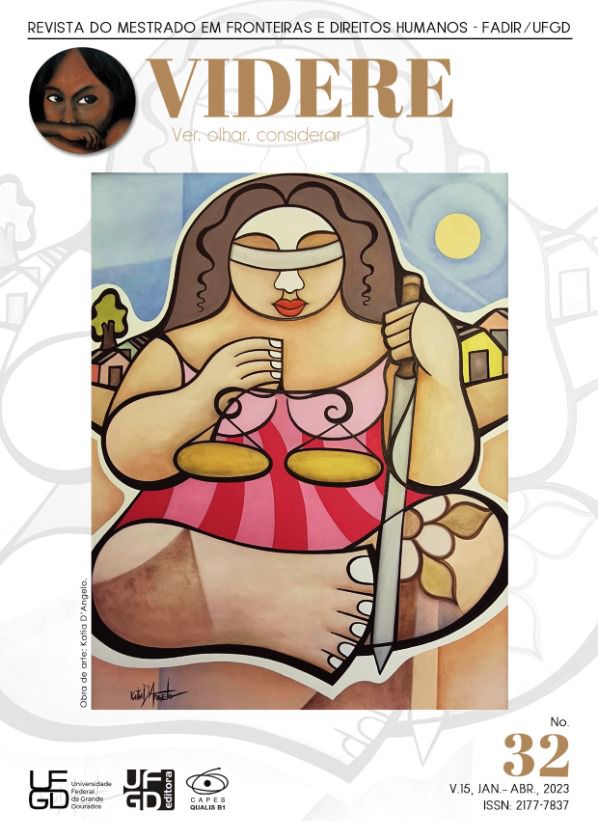Análise crítica acerca do programa casa verde e amarela
DOI:
https://doi.org/10.30612/videre.v15i32.12835Palavras-chave:
Direito à moradia, Regularização fundiária, Minha casa minha vida, Casa verde e amarelaResumo
O artigo tem como escopo analisar as modificações jurídicas operadas pelo chamado Programa Casa Verde e Amarela nas políticas públicas de regularização fundiária, programa esse surgido em contexto de pandemia e prementes necessidades econômicas, a fim de identificar as principais consequências jurídico-sistemáticas que poderão advir da recente legislação. Para tanto, serão apontados inicialmente alguns aspectos históricos sobre as normas de regularização fundiária urbana, situando o contexto da nova legislação, e então apontando as principais novidades jurídicas da normativa e analisando a adequação e eventuais possibilidades de melhorias.
Downloads
Referências
CENEVIVA, Walter. Lei de registros públicos comentada. 20. ed. São Paulo: Saraiva, 2010.
LEFEBVRE, Henri. O direito à cidade. São Paulo: Centauro, 2011.
NALINI, José Renato; LEVY, Wilson. Regularização fundiária. 2. ed. rev. atual. e ampl. Rio de Janeiro: Forense, 2014.
ROLNIK, Raquel. A guerra dos lugares: a colonização da terra e da moradia na era das finanças. São Paulo: Boitempo, 2015.
Downloads
Publicado
Como Citar
Edição
Seção
Licença
Copyright (c) 2023 Revista Videre

Este trabalho é licenciado sob uma licença Creative Commons Attribution-NonCommercial-ShareAlike 3.0 Unported License.
Os autores devem aceitar as normas de publicação ao submeterem a revista, bem como, concordam com os seguintes termos:
(a) O Conselho Editorial se reserva ao direito de efetuar, nos originais, alterações da Língua portuguesa para se manter o padrão culto da língua, respeitando, porém, o estilo dos autores.
(b) Autores mantém os direitos autorais e concedem à revista o direito de primeira publicação, com o trabalho simultaneamente licenciado sob a Atribuição-NãoComercial-CompartilhaIgual 3.0 Brasil (CC BY-NC-SA 3.0 BR) que permite: Compartilhar — copiar e redistribuir o material em qualquer suporte ou formato e Adaptar — remixar, transformar, e criar a partir do material. A CC BY-NC-SA 3.0 BR considera os termos seguintes:
- Atribuição — Você deve dar o crédito apropriado, prover um link para a licença e indicar se mudanças foram feitas. Você deve fazê-lo em qualquer circunstância razoável, mas de nenhuma maneira que sugira que o licenciante apoia você ou o seu uso.
- NãoComercial — Você não pode usar o material para fins comerciais.
- CompartilhaIgual — Se você remixar, transformar, ou criar a partir do material, tem de distribuir as suas contribuições sob a mesma licença que o original.
- Sem restrições adicionais — Você não pode aplicar termos jurídicos ou medidas de caráter tecnológico que restrinjam legalmente outros de fazerem algo que a licença permita.



















